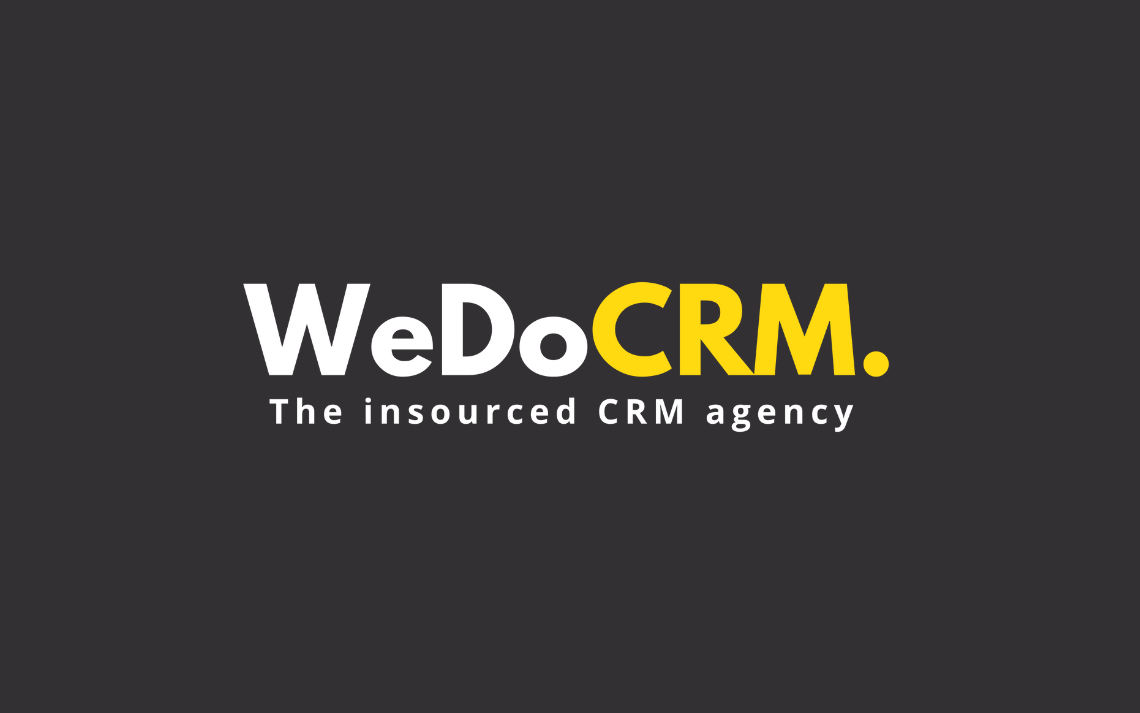Starting a small business is challenging enough without the added pressure of finding the right tools to manage customer relationships efficiently. You know CRM systems can provide that much-needed boost, but how do you select the right one? In this article, we’ll guide you through understanding your business needs and how to translate them into functional, budget-friendly CRM solutions.
1. Understanding Your Business Needs
What is a CRM and Why Does Your Small Business Need One?
A Customer Relationship Management (CRM) system is more than just a tool for storing customer data. It’s a comprehensive solution tailored to help you manage interactions with current and potential customers. At its core, it helps streamline the customer journey, from first contact to post-sale engagement. This enables you to provide a consistent and personalised experience.
Investing in CRM for your small business can yield significant benefits. By centralising your customer data, you reduce the risk of errors and inconsistencies, which can improve customer satisfaction. Additionally, CRM systems can automate repetitive tasks, freeing up your time to focus on more strategic activities. If you’re unsure about the specific advantages, check out the 5 Major Reasons You Should Invest In CRM for an in-depth look at how CRM can propel your business forward.
Pro-tip: Start by listing the current challenges in your customer management process. This will give you a clear reference point as you evaluate different CRM systems.
Identifying Your Specific CRM Requirements
Understanding what your business needs from a CRM is crucial. Start by considering the specific features that are essential for your operations. Commonly required features include:
- Contact Management: Store and manage contact information effortlessly.
- Lead Management: Track and nurture potential customers effectively.
- Sales Tracking: Monitor and forecast sales performance.
- Customer Support: Provide timely and efficient customer service.
In addition to these core features, you might require capabilities like email marketing integration or advanced reporting tools. Take the time to consult your team to understand their pain points and expectations. This ensures that the CRM you choose supports the workflows and functions critical for your business.
Pro-tip: Create a priority list of features. Categorise them as ‘must-have,’ ‘nice-to-have,’ and ‘unnecessary.’ This will make it easier to evaluate CRM options objectively.
Assessing Your Budget and Resources
Budgeting for CRM is a balancing act. You want a solution that meets your needs without draining your finances. Start by assessing your current expenditure on customer management tools and processes. This will give you an idea of how much you can allocate towards a CRM system.
When evaluating CRM solutions, be mindful of hidden costs. Some systems might have low initial costs but expensive add-ons or upgrade fees. Look for transparent pricing models and consider Total Cost of Ownership (TCO), which includes implementation, training, and maintenance costs. By doing so, you won’t find yourself overspending unexpectedly.
Pro-tip: Opt for a scalable CRM that can grow with your business. This way, you won’t need to invest in a new system as your requirements evolve.
2. Exploring CRM Features Essential for Small Businesses
Core Features: Contact and Lead Management
When evaluating a CRM for your small business, ensuring robust contact and lead management capabilities is fundamental. This feature helps you organise and manage your entire customer database efficiently. It includes keeping track of contacts, capturing leads from various sources, and ensuring you never miss a follow-up. Properly organised data helps streamline your marketing and sales processes.
With contact and lead management, you can:
- Store contact information centrally, ensuring easy access for all team members.
- Track interactions to build better customer relationships.
- Segment customers based on criteria like purchase history or engagement level for targeted campaigns.
- Capture leads from your website, social media, or other channels automatically.
Pro-tip: Ensure your CRM integrates with commonly used tools like email and social media platforms to streamline lead capture and communication.
Advanced Features: Automation and Integration Capabilities
Beyond the basic features, automation helps you save time and reduce manual efforts significantly. Look for a CRM that offers workflow automation, such as sending follow-up emails, setting reminders, and updating records automatically. This helps maintain consistency and ensures critical tasks are not overlooked.
Automation can help in:
- Streamlining repetitive tasks like routine follow-ups and status updates.
- Tracking sales activities and automating the sales pipeline.
- Nurturing leads with automated email campaigns.
- Improving customer service through timely responses triggered by customer actions.
Equally important is integration capabilities. Your CRM should integrate seamlessly with other software you use daily, such as email marketing tools, accounting software, and e-commerce platforms. This connectivity ensures data flows freely between systems, enhancing operational efficiency and providing a holistic view of your business interactions.
Key integrations should include:
- Email platforms for managing marketing campaigns.
- Accounting tools to align sales and financial data.
- E-commerce systems to synchronise customer purchase history.
Pro-tip: Select a CRM with robust API support for custom integrations, allowing you to connect niche tools specific to your business needs.
Evaluating CRM Mobility and Ease of Use
In today’s dynamic business environment, mobility is paramount. A mobile-friendly CRM ensures your team can access vital information on-the-go, whether they’re in the office, at a client meeting, or travelling. Features such as mobile apps and responsive design make it easy for your team to manage tasks and stay updated from their smartphones or tablets.
Advantages of mobile CRM include:
- Real-time access to information, ensuring informed decisions anywhere.
- Immediate data updates, reflecting the latest interactions and changes.
- Enhanced team collaboration with shared up-to-date information.
Ease of use is another critical consideration. A user-friendly CRM encourages quick adoption by your team, reducing the training time and increasing productivity. Look for intuitive interfaces, simple navigation, and clear instructions.
Ease of use involves:
- Straightforward setup and customisation without needing extensive technical know-how.
- Clear dashboards and reporting tools to visualise data easily.
- User support and tutorials to assist new users in getting up to speed.
Pro-tip: During your trial period, engage a few team members to test the CRM’s mobility and ease of use to ensure it fits seamlessly with your daily operations.
3. Making the Decision
Comparing Top CRM Solutions for Small Businesses
Selecting the right CRM solution for your small business can make all the difference. Several popular CRM platforms are tailored to meet small business needs, each with unique features and strengths. Salesforce Essentials, for example, offers powerful integrations and customisation options that cater to growing enterprises. HubSpot CRM, on the other hand, is favoured for its user-friendly interface and robust free tier, making it accessible for businesses just starting.
Zoho CRM is another strong contender, known for its affordable pricing and comprehensive suite of tools, including sales automation and customer analytics. Freshsales stands out with its AI-driven lead scoring and intuitive pipeline management. Lastly, Pipedrive is renowned for its simplicity and effective sales tracking. Evaluating these CRM solutions can provide clarity on which features align best with your business goals and operations.
Pro-tip: When comparing CRM systems, jot down a list of must-have features specific to your business needs. This will help you shortlist the most fitting solutions quickly!
Considering WeDoCRM for Your CRM Needs
Are you unsure which CRM to choose? Consider leveraging specialised agencies that provide tailored CRM solutions like WeDoCRM. WeDoCRM offers insourced support, CRM system migrations, and extensive MarTech development services. For small businesses, WeDoCRM’s expertise in working with platforms such as HubSpot and Salesforce can streamline your CRM adoption process.
WeDoCRM’s insourced model ensures seamless integration with your existing operations. They focus on real-time communication through your internal platforms, offering flexibility and responsiveness. This model benefits small businesses by providing rapid onboarding within a week and by avoiding the pitfalls of more traditional, peripheral agencies. Learn more about how a CRM agency can help your business and select the right platform.
Pro-tip: If you’re new to CRM systems, partnering with an agency like WeDoCRM can save time and resources by removing guesswork from the equation!
Implementing Your Chosen CRM: Next Steps
Once you’ve selected the perfect CRM, the next steps involve implementation and integration. Start with data migration, ensuring all existing customer information is accurately transferred to the new system. This phase is critical to maintaining data integrity and avoiding disruptions to your business operations. Aim to conduct data audits and cleansing before migration for optimal results.
Following data migration, train your team on using the new CRM. Investing time in comprehensive training helps your team utilise all CRM features effectively, improving overall productivity. Consider utilising resources provided by your selected CRM or engaging WeDoCRM, which offers tailored training sessions. Finally, continuously monitor and optimise CRM usage to ensure it aligns with your evolving business needs. Periodic reviews and adjustments will guarantee your CRM continues to support your growth.
Pro-tip: Break down the implementation into manageable stages and assign clear responsibilities. This will simplify the process and boost your team’s confidence.
Choosing and implementing a CRM system can seem daunting, but with a clear understanding of your business needs, and the right support, it’s entirely achievable. Start by assessing your priorities and budget, then explore the best CRM options. Partnering with a reputable agency like WeDoCRM can further simplify your journey, ensuring the selected CRM aligns seamlessly with your operations.
Frequently Asked Questions
What is the top 3 best CRM platform to use for small businesses?
Top three CRM platforms for small businesses:
- Salesforce Essentials: Customisable and robust.
- HubSpot CRM: User-friendly and has a solid free tier.
- Zoho CRM: Affordable with comprehensive features.
How do I know which CRM to use?
Consider factors like:
- Your specific business needs
- Budget constraints
- Ease of use and training requirements
- Integration capabilities
- Customer support and resource availability
Should a small business use a CRM?
Yes, a CRM helps small businesses by:
- Managing and storing customer information efficiently
- Automating sales and marketing tasks
- Enhancing customer relationship and support
- Improving team collaboration and productivity
What to consider when buying CRM?
When buying a CRM, look at:
- Core features like contact and lead management
- Advanced features such as automation and integrations
- Costs and scalability
- User experience and training
- Customer support and service agreements
Need more detailed guidance on choosing a CRM or CRM agency? Our team of experts are always on-hand to give advice and support with implementation. Also, check out this helpful resource on the 5 best CRM platforms on the market.






